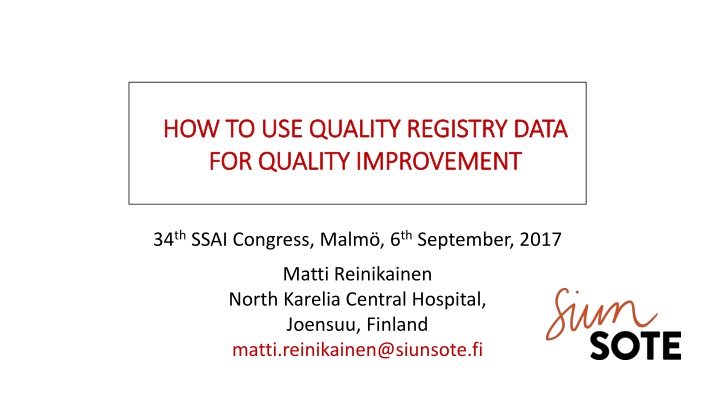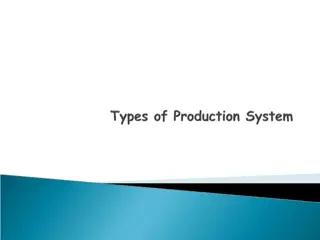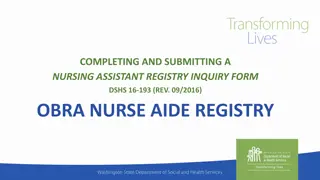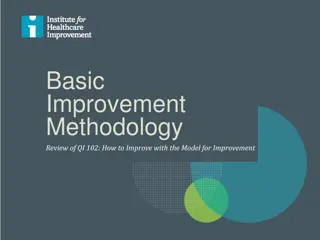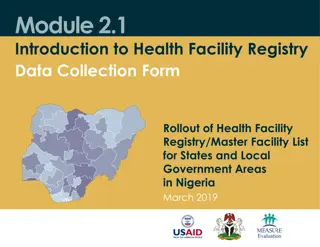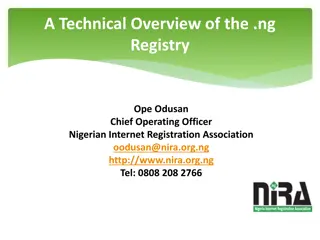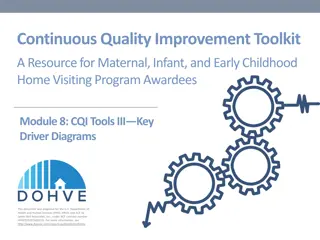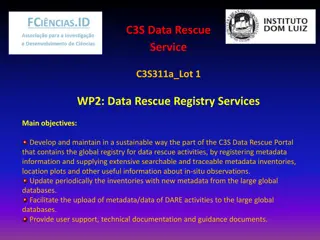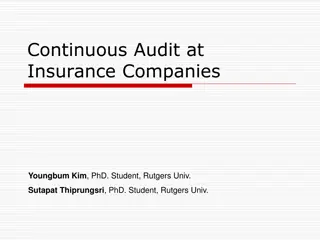Utilizing Quality Registry Data for Continuous Quality Improvement
Show interest in performance statistics to drive quality improvements. Understand confounders affecting performance calculations like risk-adjustment models. Dig deeper to identify factors explaining differences between units and learn from good practices. Stay vigilant and avoid complacency in interpreting data results.
Download Presentation

Please find below an Image/Link to download the presentation.
The content on the website is provided AS IS for your information and personal use only. It may not be sold, licensed, or shared on other websites without obtaining consent from the author.If you encounter any issues during the download, it is possible that the publisher has removed the file from their server.
You are allowed to download the files provided on this website for personal or commercial use, subject to the condition that they are used lawfully. All files are the property of their respective owners.
The content on the website is provided AS IS for your information and personal use only. It may not be sold, licensed, or shared on other websites without obtaining consent from the author.
E N D
Presentation Transcript
HOW TO USE QUALITY REGISTRY DATA HOW TO USE QUALITY REGISTRY DATA FOR QUALITY IMPROVEMENT FOR QUALITY IMPROVEMENT 34th SSAI Congress, Malm , 6th September, 2017 Matti Reinikainen North Karelia Central Hospital, Joensuu, Finland matti.reinikainen@siunsote.fi
SUMMARY 1 Show interest in the performance statistics of your unit. Data per se do not create quality improvements, but your actions may make a difference. Are there signals suggesting reasons for actions? However, if the report claims that your performance statistics are good/poor, don t get too excited/anxious differences in results do not necessarily mean quality differences.
SUMMARY 2 Familiarise yourself with the main confounders affecting the performance calculations, e.g. factors that may affect the calculation of the standardised mortality ratio (SMR): 1) Poor fit of the risk-adjustment model 2) Factors affecting the measurement of severity of illness 3) The measurement of mortality bias caused by differences in hospital discharge practices 4) Random variation 5) Yule-Simpson s paradox
SUMMARY 3 Dig deeper: try to find the factors that explain differences between units What is it that your comparator is doing better? Is there something that you could learn, perhaps some good practices that you might copy? Sometimes, the data may tell you that you are doing well. That s a good reason for being happy, but beware of becoming self-satisfied!
